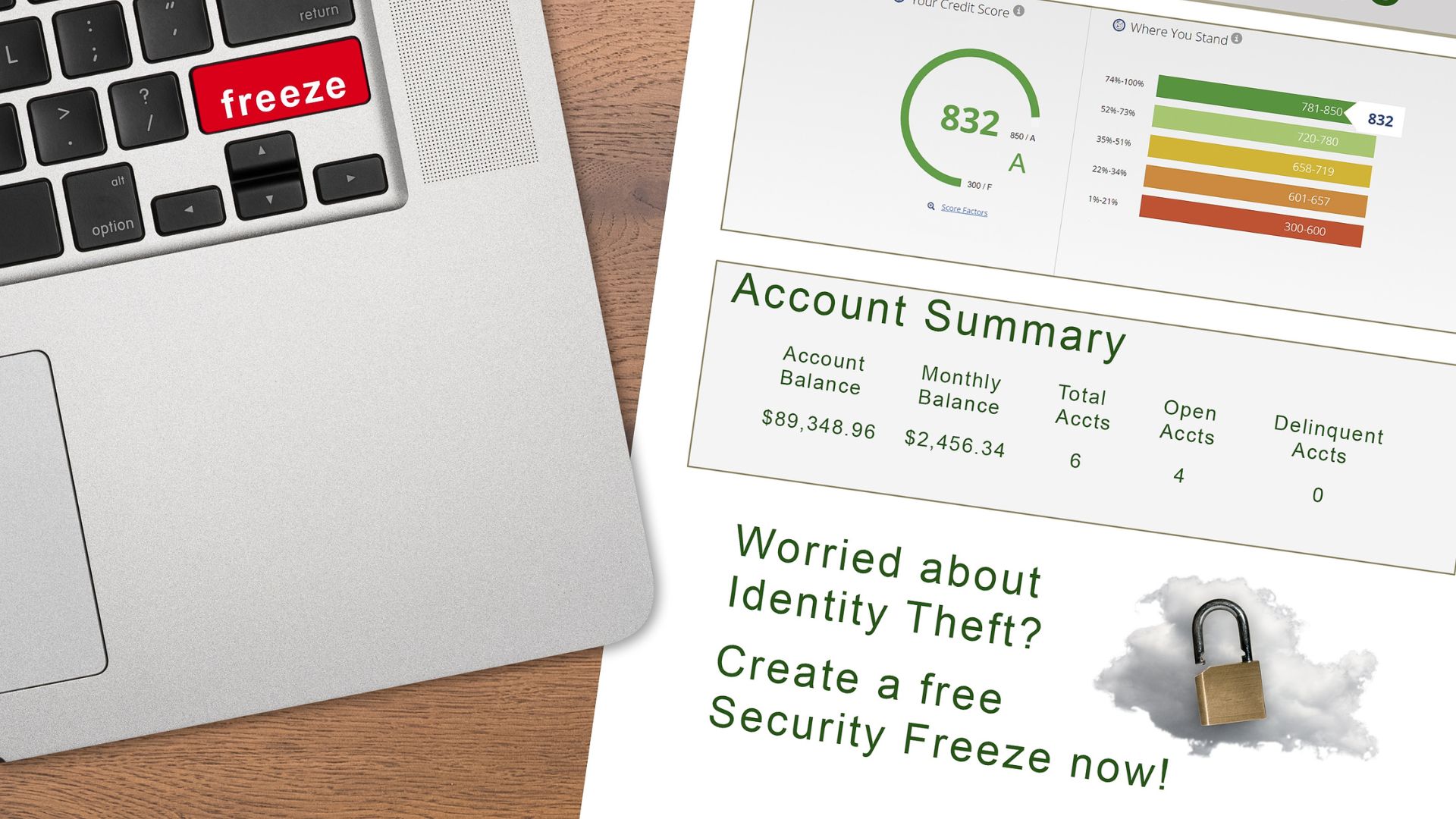How to Protect Your Credit with a Credit Freeze
Identity theft will affect approximately 1/3 of Americans in their lifetime, according to identitytheft.org. One way to protect your identity is with a credit freeze.
What is a credit freeze?
A credit freeze prevents unauthorized users from accessing your credit without your approval. It provides a major roadblock to any scammer trying to open a fraudulent credit account in your name. According to a survey published by the Identity Theft Resource Center, only 3% of Americans freeze their credit after receiving a data breach notice.
Pros of freezing your credit:
- A credit freeze does not affect your ability to use the credit accounts you already have.
- It does not affect your credit score.
- It’s free through all three of the credit bureaus (Transunion, Equifax, and Experian) per federal law as of September 21, 2018.
Cons of freezing your credit:
- All three credit bureaus must be contacted by phone or online, which can be inconvenient.
- Accounts may have to be established online, and usernames/passwords need to be remembered to unfreeze credit. Pin numbers are no longer required though.
- If you are looking for a new job, car, or home, a credit freeze can be problematic.
It is important to place the credit freeze with all three credit bureaus to be effective. You can unfreeze your credit at any time in the event you need access to it (i.e., home or car purchase, new credit card, etc.). You can temporarily unfreeze your credit or permanently unfreeze it.
Below are links to all three credit bureaus and their specific steps to freeze your credit:
- Equifax (888-298-0045): https://www.equifax.com/personal/credit-report-services/
- Transunion (Freeze: 800-916-8800; Unfreeze: 888-909-8872): https://www.transunion.com/credit-freeze
- Experian (888-397-3742): https://www.experian.com/ncaconline/freeze
While on their website, you can also get the information needed to freeze your minor’s credit report or an incapacitated adult’s credit report.
Staying Diligent
- While frozen, you can still monitor your own credit by requesting free credit reports from each credit bureau once per year https://www.annualcreditreport.com/index.action.
- Update your account passwords using strong and unique passwords for every account.
- Use a password manager.
- Consider setting up a private domain email.
- Use Device protection (anti-virus software)
- Get a VPN.
- Take advantage of free credit monitoring services through your credit card companies.
- Review account statements regularly for suspicious activity.
- Opt out of credit and insurance offers.
Additional Resources
What Else Can You Do To Secure Your Online Financial Information – The Colony Group’s Her Wealth
OptOutPreScreen – To opt out of credit or insurance offers
How Do I Get a Free Credit Freeze? – NerdWallet
How to Freeze Your Credit Account & Protect Your Personal Information – Total Digital Security

